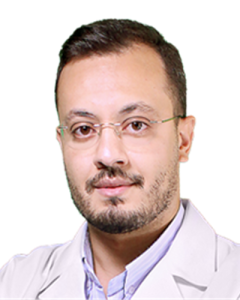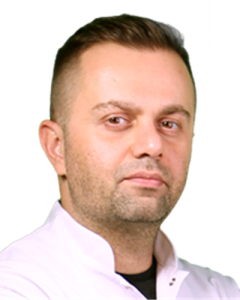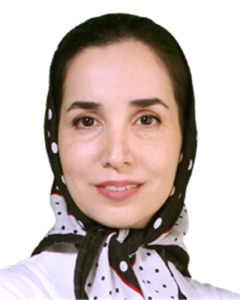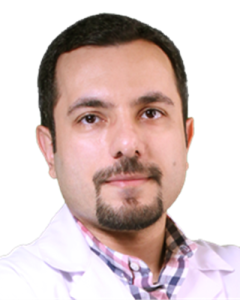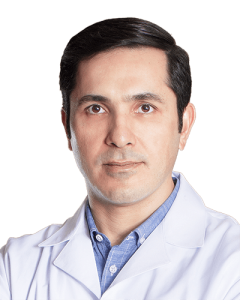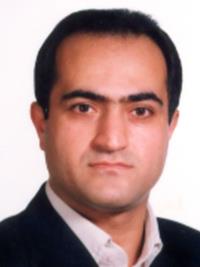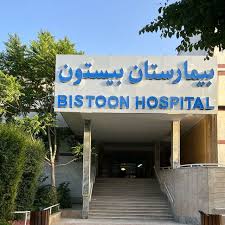Ophthalmology Clinic in Iran
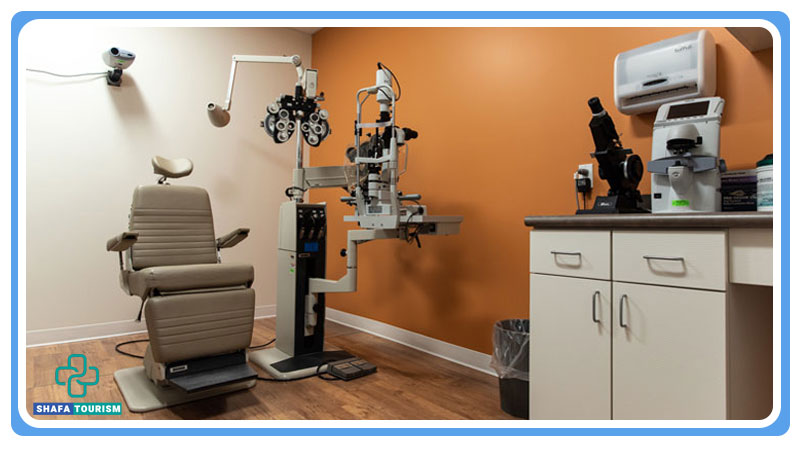
Are you seeking top-tier ophthalmological care but facing exorbitant costs and long waiting times in your home country? At Shafatourism, we understand the urgency of your eye health needs. Our specialized medical tourism services offer you immediate access to world-class ophthalmology treatments in Iran, combining cutting-edge technology with highly skilled surgeons, all at a fraction of the cost. Experience unparalleled care and rejuvenate your vision while exploring the rich cultural heritage of Iran.
Actions Eyes in Iran
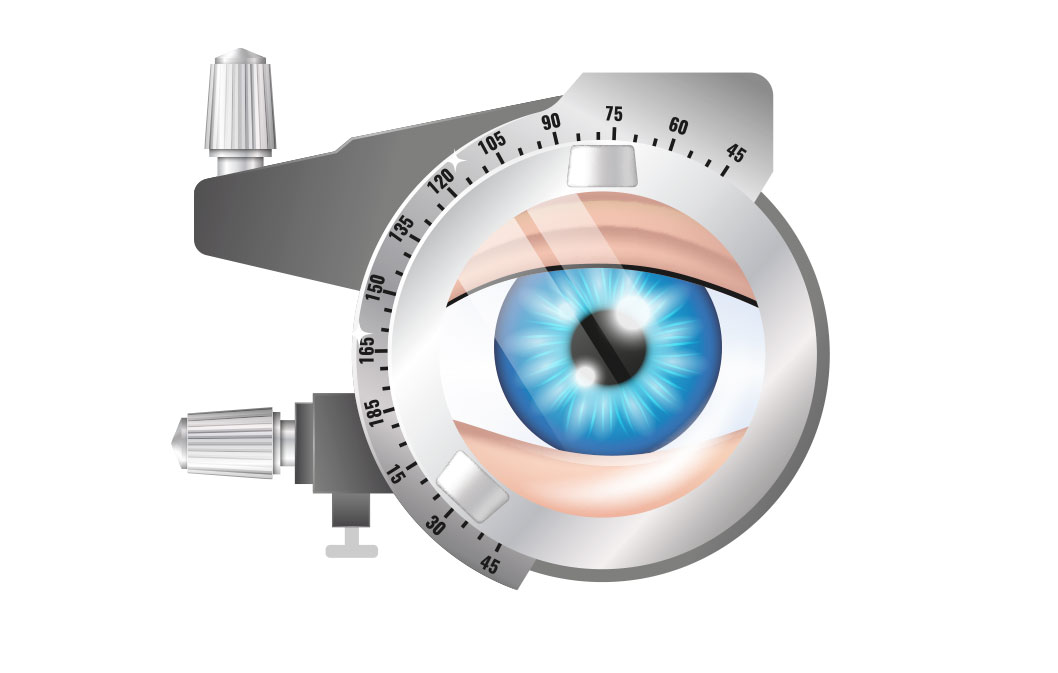
LASIK eye surgery

Eye lasing operation

Eye surgery

Eye femtolysis operation

Blepharoplasty

Deflection of the eye

Crosslink operation

Cataract surgery
Bronze package
-
3 star hotel
-
Leader
-
Transfer
-
Ticket
-
SIM card and internet
-
The turn of the treatment center
-
Visa
-
Translator
Silver package
-
4 star hotel
-
Leader
-
Transfer
-
Ticket
-
SIM card and internet
-
The turn of the treatment center
-
Visa
-
Translator
Gold package
-
5 star hotel
-
Leader
-
Transfer
-
Ticket
-
SIM card and internet
-
The turn of the treatment center
-
Visa
-
Translator
Cost of operations
Cataract Surgery-one eye
$ 1200
Cataract Surgery with femtosecond device-one eye
$ 1600
ICRS-one eye-Ring included
$ 1900
ICRS-both eyes-Ring included
$ 3100
Corneal Transplantation-one eye-Corneal tissue included)
$ 2700
Corneal Transplantation with Femtosecond device-one eye-Corneal tissue included
$ 3100
Examination under Anesthesia
$ 500
Prerygium-one eye
$ 1100
Deep Vitrectomy+Cataract surgery-one eye
$ 4000
Beachytheraphy-internal radiation therapy-one eye
$ 6500
Glaucoma-one eye
$ 2000
Glaucoma+Cataract-one eye
$ 2500
Ahmad Glaucoma Valve-one eye
$ 2500
Strabismus Surgery-two muscles
$ 1600
Strabismus Surgery-three muscles
$ 1800
Blepharoplasty: Eyelid Surgery-two eyelids
$ 1200
DCR-Dacryocystorhinostomy with stent-one eye
$ 1700
DCR-Dacryocystorhinostomy without stent-one eye
$ 1600
PRK Eye Laser Surgery-both eyes
$ 1200
FemtoLasik-both eyes
$ 1800
FemtoSlime-both eyes
$ 2200
Eylea intravitreal injection-both eyes
$ 1000
Compare prices
LASIK eye surgery
Cataract surgery
Deflection of the eye
What is Ophthalmology
Ophthalmology is a branch of medicine and surgery dedicated to the diagnosis, treatment, and prevention of eye disorders. This field encompasses a wide range of services from routine eye exams to complex surgical procedures aimed at correcting visual impairments and treating eye diseases.
Background of Ophthalmology and Eye Diseases in Iran
Ophthalmology has ancient roots, with significant contributions from Persian scholars such as Rhazes and Avicenna, who pioneered early eye care techniques. Over centuries, Iran has evolved into a hub for advanced ophthalmological practices. Today, Iranian ophthalmologists are renowned for their expertise in procedures like LASIK, cataract surgery, and corneal transplants, making Iran a leading destination for eye care globally.
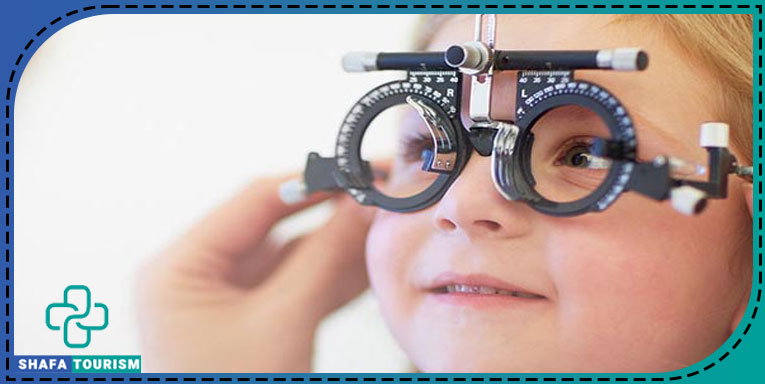
Causes of Eye Diseases in Iran
Eye disorders requiring ophthalmological intervention can stem from various causes, ranging from genetic predispositions to environmental factors and lifestyle choices. At Shafatourism, we recognize the importance of accurate diagnosis and effective treatment to address these conditions promptly.
Diagnostic Tests
Proper diagnosis is the cornerstone of effective ophthalmological treatment. Comprehensive eye exams typically include visual acuity tests to measure vision sharpness, dilated eye exams that use drops to widen the pupil for a thorough examination of the retina and optic nerve, tonometry to measure intraocular pressure crucial for diagnosing glaucoma, and retinal imaging techniques like Optical Coherence Tomography (OCT) that provide detailed pictures of the retina. These diagnostic tests are essential for identifying the specific nature of eye disorders and formulating an appropriate treatment plan.
Types of Eye Disorders Requiring Ophthalmology
- Cataracts: Characterized by clouding of the eye’s natural lens, cataracts cause blurry vision and can lead to blindness if untreated. Surgery is the most effective treatment.
- Glaucoma: A group of eye conditions that damage the optic nerve, often associated with high intraocular pressure. Early detection through regular eye exams is vital for management.
- Macular Degeneration: This age-related condition affects the central part of the retina (macula) and leads to loss of central vision. Treatment options include medications and laser therapy.
- Diabetic Retinopathy: A complication of diabetes that affects the blood vessels in the retina, potentially leading to blindness. Controlling blood sugar levels and regular eye exams are crucial for prevention and treatment.
- Refractive Errors: Conditions like myopia (nearsightedness), hyperopia (farsightedness), and astigmatism are caused by the eye’s inability to focus light correctly on the retina. These are commonly corrected with glasses, contact lenses, or refractive surgery such as LASIK.
- Corneal Disorders: Conditions affecting the cornea, such as keratoconus, can distort vision. Treatments range from specialized contact lenses to corneal transplants.
By addressing these disorders with precision and care, Shafatourism expects that our patients receive the best possible outcomes, restoring their vision and improving their quality of life.
Types of ophthalmic treatments in Iran
Iran is renowned for its advanced ophthalmology services, offering a variety of cutting-edge methods to treat eye disorders. At Shafatourism, we ensure that our patients receive top-tier eye care using the latest techniques available globally. Here are the primary ophthalmology methods practiced in Iran:
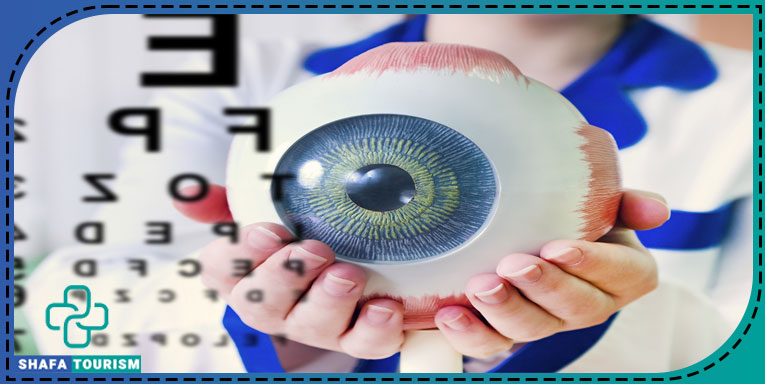
Cataract Surgery
Iran is a leader in cataract surgery, utilizing modern techniques to ensure successful outcomes.
- Phacoemulsification: The most common technique, where ultrasonic energy breaks up the cloudy lens for easy removal. An intraocular lens (IOL) is then implanted.
- Extracapsular Cataract Extraction (ECCE): Used for advanced cataracts, involving a larger incision to remove the lens in one piece before inserting the IOL.
Refractive Surgery (LASIK and PRK)
Refractive surgeries are widely performed in Iran to correct vision problems.
- LASIK (Laser-Assisted in Situ Keratomileusis): A flap is created on the cornea’s surface, and the underlying corneal tissue is reshaped using a laser.
- PRK (Photorefractive Keratectomy): The corneal epithelium is removed, and the underlying tissue is reshaped. Suitable for patients with thin corneas.
Glaucoma Treatments
Glaucoma management in Iran includes various advanced techniques.
- Medications: Eye drops and oral medications to reduce intraocular pressure.
- Laser Therapy: Procedures like Selective Laser Trabeculoplasty (SLT) to enhance fluid drainage from the eye.
- Surgical Options: Trabeculectomy and drainage implants to facilitate fluid outflow and reduce intraocular pressure.
Vitrectomy
Vitrectomy procedures are performed to treat retinal and vitreous disorders.
- Pars Plana Vitrectomy: Removal of the vitreous gel to provide better access to the retina for treating retinal detachment, diabetic retinopathy, and macular holes.
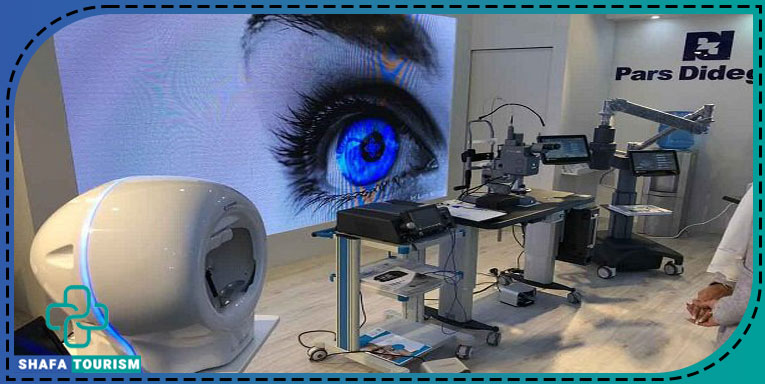
Corneal Transplantation
Corneal transplants in Iran are highly successful and include various methods.
- Penetrating Keratoplasty (PK): Full-thickness corneal transplant to replace a damaged cornea.
- Endothelial Keratoplasty (EK): Partial-thickness transplants, such as Descemet’s Stripping Endothelial Keratoplasty (DSEK) and Descemet Membrane Endothelial Keratoplasty (DMEK), focusing on the innermost layers.
Ocular Surface Reconstruction
These methods restore the eye’s surface integrity, treating severe dry eye and surface damage.
- Amniotic Membrane Transplantation: Uses tissue from the amniotic sac to promote healing of the eye surface.
- Limbal Stem Cell Transplantation: Replaces damaged stem cells to restore corneal clarity and function.
Intravitreal Injections
Intravitreal injections are used for delivering medication directly into the eye to treat various retinal conditions.
- Anti-VEGF Therapy: Used to treat age-related macular degeneration and diabetic retinopathy by inhibiting abnormal blood vessel growth.
- Steroid Injections: To reduce inflammation in conditions like uveitis and macular edema.
Photodynamic Therapy (PDT)
PDT is utilized to treat macular degeneration.
- PDT Process: Involves a photosensitizing drug activated by a specific laser to target and destroy abnormal blood vessels in the retina.
ShafaTourism works with ophthalmology clinics in Iran which are equipped with advanced medical facilities and experienced ophthalmologists who use the latest techniques to treat a wide range of eye disorders. Whether it’s routine eye surgery or complex retinal procedures, Iranian experts offer comprehensive and affordable solutions for all your ophthalmological needs.
Consultation about Ophthalmology Clinic in Iran
At Shafatourism, we prioritize your eye health by offering comprehensive ophthalmology consultations designed to provide detailed assessments, personalized treatment plans, and expert advice. By contacting our consultants, you will receive precise guidance and be referred to the best clinics. Beyond medical services, Shafatourism also arranges accommodation and tourism services, including flight tickets and visas, through our trusted providers. This ensures you receive the best possible care and have a seamless experience during your stay in Iran. Here’s what you can expect from an ophthalmology consultation provider in Iran.
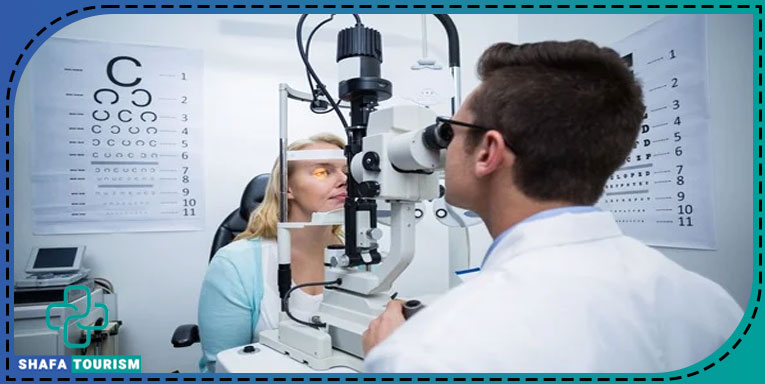
In What Cases Is Ophthalmology Not Recommended?
While ophthalmology can address a wide range of eye disorders, there are certain situations where specific procedures might not be advisable:
- Pregnancy
- Uncontrolled Systemic Diseases
- Active Eye Infections.
- Recent Eye Surgery.
Diagnosis Methods of Eye Diseases in Iran
The diagnosis in ophthalmology involves a series of meticulous tests and examinations to determine the precise nature of the eye disorder. We are dedicated to referring you to the best clinics for each specific condition. During your stay in Iran, Shafatourism and our team will be with you every step of the way. We ensure that you have a translator by your side to facilitate seamless communication. During your consultation, the following diagnostic methods are commonly employed by our partnered clinics:
- Comprehensive Eye Examination
- Slit-Lamp Examination
- Tonometry
- Dilated Eye Exam
- Retinal Imaging
- Visual Field Test
- Corneal Topography
- Electroretinography (ERG) and Visual Evoked Potential (VEP).
Shafatourism in relation with partner clinics, leverages these advanced diagnostic tools to provide an accurate diagnosis, which is crucial for developing effective treatment plans tailored to your specific needs. Whether you are dealing with common refractive errors or more complex retinal conditions, our comprehensive consultations ensure that you receive the highest standard of eye care in Iran.
Ophthalmology and Eye Surgery for Whom Is It Suitable?
Ophthalmology treatments in a clinical setting are suitable for individuals experiencing a wide range of eye issues. These include those suffering from refractive errors (such as myopia, hyperopia, and astigmatism), cataracts, glaucoma, macular degeneration, diabetic retinopathy, and corneal disorders. Patients seeking routine eye exams, as well as those requiring complex surgical interventions, will find appropriate and effective care in a specialized ophthalmology clinic.
How Long Does Ophthalmology Take?
The duration of ophthalmology procedures varies based on the type and complexity of the treatment. Routine eye exams can take anywhere from 30 minutes to an hour. Surgical procedures, such as cataract surgery or LASIK, typically last between 15 to 45 minutes per eye. More complex surgeries, like vitrectomy or corneal transplants, may take several hours, including preparation and recovery time. Post-procedure monitoring and follow-up visits are crucial for ensuring successful outcomes.
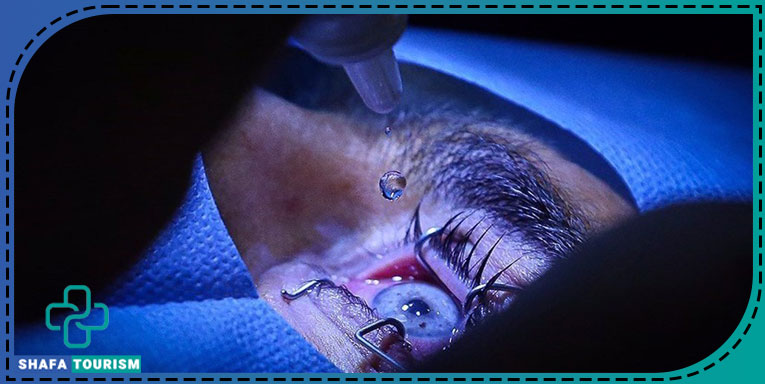
Care Before Ophthalmology
- Pre-Operative Consultation: Detailed medical and ocular history review, comprehensive eye examination, and discussion of treatment options.
- Diagnostic Tests: Depending on the condition, tests like visual acuity, tonometry, and retinal imaging might be performed.
- Medication Review: Patients might need to stop certain medications that could interfere with the procedure.
- Fasting and Preparation: For procedures requiring anesthesia, patients are advised to fast for a specific period.
- Pre-Surgery Instructions: Detailed instructions regarding hygiene and the use of any prescribed eye drops or medications.
Care After Ophthalmology
- Immediate Post-Operative Care: Monitoring for a few hours post-surgery to ensure there are no immediate complications.
- Medications: Use of prescribed eye drops and medications to prevent infection and control inflammation.
- Protective Measures: Wearing an eye shield or protective glasses to prevent accidental injury and reduce exposure to bright light.
- Follow-Up Visits: Scheduled check-ups to monitor healing and address any concerns. Adjustments to medications or additional treatments may be necessary.
- Activity Restrictions: Avoiding strenuous activities, swimming, and heavy lifting to facilitate proper healing.
By following these pre- and post-operative care steps, patients can ensure optimal outcomes from their ophthalmology procedures. At Shafatourism, we guide you through each stage, providing comprehensive support and expert care to achieve the best possible results for your eye health.
The Best Ophthalmology Clinic in Iran
Choosing the right ophthalmology clinic is crucial for receiving high-quality eye care. Shafatourism assists you in selecting the best ophthalmology clinic in Iran, ensuring it meets all your medical needs and provides exceptional service. Our detailed research considers factors such as the clinic’s reputation, patient reviews, and the credentials of its ophthalmologists. We provide comprehensive information about top clinics, helping you make an informed decision. Shafatourism evaluates clinics based on success rates, patient satisfaction, and adherence to international medical standards, ensuring you receive the best care possible.
The credibility and quality of the treatment center are paramount. The best clinics in Iran are accredited by national and international health organizations, guaranteeing they meet high standards of medical practice. Maintaining a clean and hygienic environment is critical to preventing infections and ensuring patient safety. Shafatourism ensures that the clinics we recommend uphold the highest hygiene standards, with state-of-the-art sterilization equipment and rigorous cleanliness practices. All our partnered clinics are fully licensed by the Ministry of Health and regularly inspected by health authorities, ensuring safe and effective medical care.
Counseling and Support Sessions
The best ophthalmology clinics offer counseling and support sessions to help patients understand their conditions, treatment options, and post-operative care. Shafatourism ensures that our partner clinics provide extensive support, from initial consultations to follow-up care, ensuring patients are well-informed and comfortable throughout their treatment journey.
Ophthalmology Clinic Equipment
Leading clinics in Iran are equipped with advanced technology such as:
- High-Resolution Retinal Imaging Devices: For detailed views of the retina.
- Laser Systems: For precision in surgeries like LASIK and cataract removal.
- Optical Coherence Tomography (OCT): For detailed cross-sectional images of the retina.
Shafatourism ensures that the clinics we work with are equipped with the latest ophthalmological tools and technologies, guaranteeing the highest standards of care.
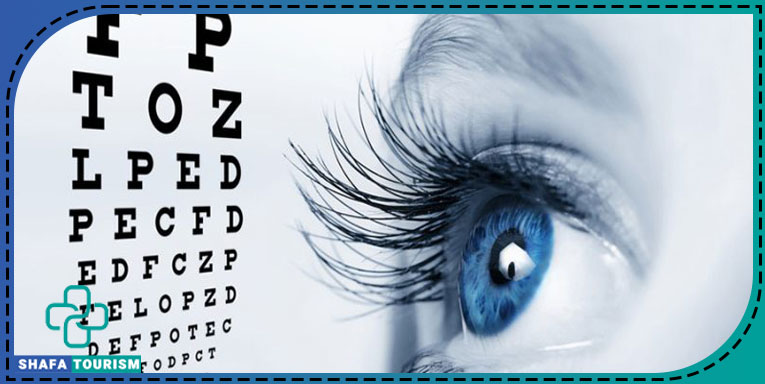
What is the Ability of the Best Ophthalmology Clinic?
The best ophthalmology clinics in Iran offer comprehensive services, including advanced diagnostics, refractive surgeries like LASIK and PRK, cataract surgeries with the latest techniques, retinal treatments, and both medical and surgical glaucoma management. At Shafatourism, we partner with top-tier clinics that exhibit these abilities and more. Our commitment is to connect you with the best ophthalmology services in Iran, ensuring you receive world-class care that meets your specific needs.
Last Words
At Shafatourism, we are dedicated to providing exceptional ophthalmology services for international patients seeking high-quality eye care in Iran. Our partnership with leading clinics ensures that you receive the best possible treatments, supported by advanced technology, expert medical staff, and comprehensive patient care. Trust Shafatourism to guide you through every step of your medical journey, from consultation to recovery, ensuring a seamless and satisfactory experience.
Doctors
Centers
FAQs
During your consultation with Shafatourism, detailed diagnostic tests and assessments will determine your suitability for specific ophthalmology procedures based on your eye condition and overall health.
The length of stay varies depending on the procedure and individual recovery time. Typically, patients may need to stay for a few days to a couple of weeks to ensure proper recovery and follow-up care.
Shafatourism offers comprehensive services, including consultation arrangements, connecting you with top clinics, coordinating your treatment plan, and providing support throughout your medical journey to ensure a smooth and successful experience.
The cost varies depending on the type of treatment and the clinic. However, ophthalmology treatments in Iran are generally more affordable compared to many other countries, without compromising on quality. Shafatourism can provide detailed cost estimates and assist with financial planning.
The cost of laser eye surgery varies widely depending on the specific procedure, the clinic, and the country. On average, in Iran, the cost ranges from — to — per eye. Get in touch with our experts and consultants to receive complete information on costs and conditions
The cost of LASIK eye surgery typically ranges from — to — per eye in Iran which is very affordable for medical tourists. In some cases, the price can be lower or higher depending on factors such as the surgeon’s experience, the technology used (e.g., bladeless LASIK or wavefront technology), and the level of expertise of the clinic. Get in touch with our experts and consultants to receive complete information on costs and conditions
